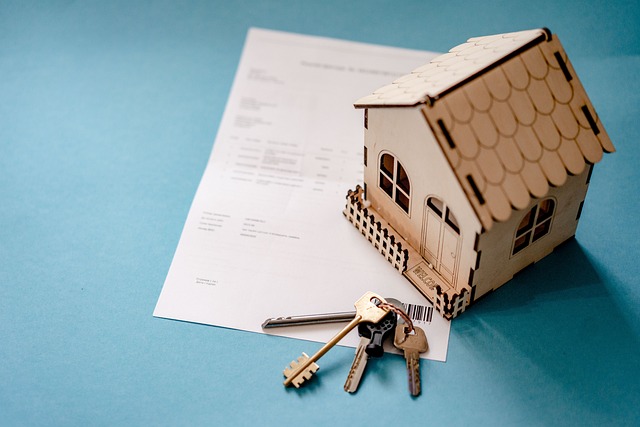Singapore permits foreigners to buy residential properties, primarily through condominiums under the Approved Outline Plan (AOP) scheme overseen by the Singapore Land Authority (SLA), but they cannot own landed homes like terraced houses, semi-detached houses, or bungalows. This policy is designed to encourage foreign professionals, entrepreneurs, and investors to contribute to Singapore's economy and society. Entities, whether Singaporean or foreign, can invest in both residential and non-residential properties with the necessary approvals. The government carefully balances welcoming foreign investment with protecting local residents' rights. Foreign individuals looking to invest must understand the legal framework and comply with SLA's regulations. It is crucial for prospective buyers to work with real estate experts or seek legal counsel to ensure transactions meet regulatory standards.
Foreigners are also free to invest in Singapore's commercial and industrial properties, including retail, office, and mixed-use developments, due to the lack of ownership restrictions in these sectors. Singapore's strategic location, robust legal framework, and strong economic performance make it an appealing destination for property investment. To successfully navigate the market and adhere to regulations, foreign investors should consult with local real estate experts who can offer guidance on market dynamics and ensure compliance with Singapore's property laws, thereby facilitating well-informed investment decisions aligned with their objectives. Can foreigners buy property in Singapore? Yes, under specific conditions and within certain categories of properties, as regulated by the Singapore Land Authority.
Foreign investors often explore international real estate markets for investment opportunities, with Singapore frequently at the forefront due to its stable economy and strategic location. This article delves into the nuances of property ownership rights for foreigners in Singapore, providing a comprehensive analysis of the legal framework, market risks, and regulatory considerations. We will examine the restrictions on residential and commercial properties, the role of the Singapore Land Authority (SLA), and the challenges faced by foreign investors in securing mortgages and financing. Additionally, we will discuss the impact of global economic trends, strategies for risk management, long-term implications, and insights from real estate experts. Case studies illustrate both the successes and setbacks of foreign investment in Singapore’s property market. Stay informed about the latest legal and regulatory changes, and understand the cultural and taxation considerations that are integral to navigating this dynamic sector. Can foreigners buy property in Singapore? The answer is nuanced, with a range of factors influencing their ability to invest here. This article serves as a guide to understanding these complexities.
- Overview of Property Ownership Rights for Foreigners in Singapore
- Navigating the Legal Framework and Implications for Foreign Investors
Overview of Property Ownership Rights for Foreigners in Singapore

In Singapore, property ownership is regulated with a focus on sustainable growth and stability within the real estate market. Generally, foreigners are permitted to own residential properties, except for landed properties which include terraced houses, semi-detached houses, and bungalows. The Singapore Land Authority (SLA) administers the Approved Outline Plan (AOP) scheme that allows foreigners to purchase condominium units without restriction. This scheme is designed to cater to the needs of foreign professionals, entrepreneurs, and investors who contribute to the economy and society of Singapore.
Foreign entities, such as companies incorporated in Singapore or overseas, can own both residential and non-residential properties, subject to approval from the relevant authorities. The government has established these regulations to ensure a balance between providing opportunities for foreign investment and safeguarding the interests of local residents. For individual foreigners looking to invest in Singapore’s property market, it is crucial to understand the legal framework and compliance requirements set forth by the SLA. Prospective buyers should engage with real estate professionals or consult legal experts to navigate the process smoothly, ensuring they meet all necessary criteria for property ownership in Singapore.
Navigating the Legal Framework and Implications for Foreign Investors

Navigating the legal framework for foreigners interested in property ownership in Singapore is a pivotal aspect to understand due to the country’s stringent regulations. As per the Singapore Land Authority, foreigners are allowed to purchase properties with the stipulation that they must be situated outside of the Land Authority’s designated residential land areas. This policy is established to ensure the stability and sustainability of the local housing market for Singaporean citizens. Prospective investors should thoroughly review the Application for Exemption from Approval for Acquisition of Residential Property by a Foreign Person, as this document outlines the specific conditions and limitations applied to foreign ownership. It is crucial for potential buyers to comply with these regulations, as non-compliance can lead to legal ramifications such as divestment or forfeiture of the property.
Furthermore, foreign investors should be aware that while there are restrictions on purchasing residential properties within Singapore, there are no such limitations on buying commercial and industrial properties. This opens up diverse investment opportunities in sectors like retail, office spaces, and mixed-use developments. The implications for foreign investors are significant, as they can leverage Singapore’s strategic location, robust legal system, and thriving economic climate to secure profitable ventures. It is advisable for investors to engage with local real estate experts who possess a deep understanding of the market dynamics and regulatory requirements. Their guidance can be instrumental in navigating the complexities of property investment in Singapore, ensuring that foreigners can make informed decisions aligned with their investment goals.
